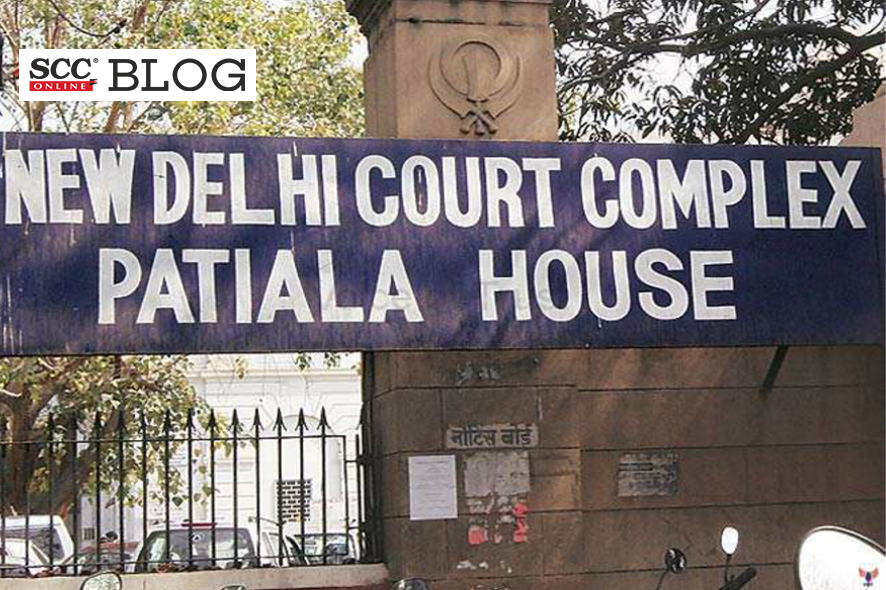Patiala House Court, New Delhi: While hearing an application filed by the lessee- Absolute Barbecque Pvt. Ltd under Section 156(3) of the Code of Criminal Procedure, 1973 (‘CrPC’) for registration of First Information Report (‘FIR’) against the owners/ lessors of the property, Yashdeep Chahal, Metropolitan Magistrate, allowed the application and directed the Investigating Officer for registration of FIR under Section 417, 420 and 120-B read with Section 34 of the Penal Code, 1860 (‘IPC’).
In the matter at hand, the lessee had taken the property in question at Connaught Place from the lessor for their restaurant. It was alleged that the lessor did not provide the property in bare shell condition, i.e., after dismantling the previous structure inside the premises for suitable renovation for their restaurant Absolute Barbecque and the requisite approvals from the New Delhi Municipal Council (‘NDMC’) and Heritage Conservation Committee for dismantling work were also not obtained by the lessor. It was alleged that the NDMC had sealed the property, causing wrongful loss to the lessee who had started the dismantling work on lessor’s representation.
The Court noted that the lessor had not obtained permission from the NDMC during the dismantling work for another restaurant functioning on the property. The Court said that the law regarding Section 156(3) of the CrPC is settled in light of various judgments. The Court referred to Alok Kumar v. Harsh Mander, 2023 SCC OnLine Del 4213, whereby, following guidelines were laid down while considering an application under Section 156(3) for want of registration of FIR:
-
The allegations reveal the commission of a cognizable offence.
-
The allegations warrant an investigation by the police/state agency.
-
The Complainant cannot establish the case without police investigation.
-
An enquiry under Section 202 of the CrPC would not be sufficient for just and thorough elucidation of truthfulness of the facts.
The Court noted that clause 6.2 of the lease agreement provided that the lessor was supposed to give possession to the lessor in bare shell condition. However, another clause 12 provided that the permissions from the NDMC were lessee’s responsibility, however clause 12 was subject to clause 6.2. In order to distinguish mere breach of agreement and cheating, the Court applied the test of intention and found that there was no intention on the part of the lessor to obtain permissions or provide the property in question in bare shell condition. The Court said that the lessor had a dishonest approach from the time of entering into the agreement and the delivery of consideration was made on false representation, forming the basic ingredients of cheating. Further, the Court said that concealment of the fact that the approvals from NDMC were absent, was a material concealment, coming within the ambit of offence of cheating.
The Court, since the alleged offence was a cognizable offence, was required to investigate whether the lessor was leasing out the properties disregarding the statutory approvals, thereby committing fraud with the lessees. Therefore, the Court held that there was need for investigation by the state agency in order to identify such design. Thus, the Court directed for registration of an FIR against the lessor under Section 417, 420 and 120-B read with Section 34 of the IPC.
[Absolute Barbecque Pvt. Ltd. v. Rabindra Nath Rekhi, 2023 SCC OnLine Dis Crt (Del) 25, Decided on 23-09-2023]
Advocates who appeared in this case :
For the complainant: Advocate Mayank Arora and Advocate Ajatshatru Singh Rawat
*Deeksha Dabas, Editorial Assistant has reported this brief.









This case highlights the importance of legal recourse for tenants facing unfair treatment from landlords. The court’s decision to direct an FIR against the landlord sets a precedent for accountability in such disputes. Tenants must know their rights and seek legal redressal when necessary. This ruling underscores the significance of upholding justice and protecting the rights of all parties involved in property transactions.